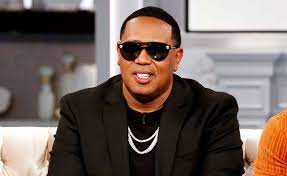The Irony of Prayers: How Misplaced Faith Is Holding Africa Back
This our God don suffer for una hand.* How often have we seen this reality across Africa? Leaders embezzle funds meant to fight crime, improve infrastructure, and build industries that would provide jobs for millions of young Africans. Then, they turn around and call on God, praying for miracles to make up for their failures. This paradox, of placing the burden on divine intervention while neglecting the actual work, reveals the complex role of religion in African society. Rather than being a uniting force for good, misplaced faith and religious manipulation have arguably done more harm than good on the continent.
Religion: A Double-Edged Sword in Africa
Religion has been deeply rooted in African cultures for centuries, with spirituality serving as a foundation of community and strength, especially during colonial times. Faith has comforted, unified, and empowered people, particularly in moments of collective struggle. However, in contemporary times, the role of religion has become distorted, creating a crutch for those in power to exploit. Politicians, corrupt officials, and religious leaders exploit faith to cover for their inaction and lack of accountability. When infrastructure fails, education systems crumble, and crime rises, citizens are told to "pray harder" instead of demanding accountability. God, it seems, is expected to fix what humans have intentionally broken.
A Cycle of Corruption and Prayer
In a time when Africa needs robust systems, job opportunities, healthcare, and safety, it’s tragic to see how funds intended for these purposes vanish in the hands of a few. Meanwhile, people are told to pray for jobs instead of seeing the industries that would provide them, pray for peace while crime escalates due to the lack of security infrastructure, and pray for an end to poverty while resources are hoarded by the powerful. This approach shifts the focus from human accountability to a false hope in miracles. But it is not divine intervention that is required to build roads, create jobs, or strengthen institutions. It is human will, governance, and accountability.
The Exploitation of Religion
Religious leaders themselves are not always innocent in this paradigm. Some preach doctrines that encourage dependency on faith alone, discouraging active pursuit of solutions and fostering a mentality that change is only possible through divine intervention. Furthermore, some of these leaders amass wealth through tithes, donations, and offerings from impoverished congregations, while the people who support them continue to suffer.
Africa is home to some of the fastest-growing churches in the world, with congregations numbering in the thousands. Yet, the prosperity of religious institutions and leaders stands in stark contrast to the conditions of their followers, who are told that their poverty is a test of faith. This contradiction is heartbreaking, particularly when religious funds could be directed toward community projects, education, and healthcare.
When Will the Cycle Break?
If Africa is to progress, it will require an honest reevaluation of the role of religion in governance and daily life. Faith is not inherently harmful, and there is no doubt that it can still be a force for good. However, for that to happen, Africans must begin to separate their belief in God from their expectations of governance and societal change. The road to progress is paved with systems, policies, and education—not solely with prayers. Leaders must be held accountable, and people must understand that they have the right to demand that their governments meet their basic needs.
Africans need to reclaim their power by refusing to accept prayers as a substitute for action. Religion should inspire us to be our best selves, push for justice, and demand equity—not to sit back and wait for miracles while those in power siphon resources. God has done enough; now, it is time for the people to do their part.
Moving Toward Action and Accountability
If we truly want to honor our faith and create a brighter future, we must start asking the tough questions:
- Why are there so many resources yet so much poverty?
- Why do we pray for jobs when we could be demanding industry and fair economic policies?
- Why do we ask for peace in crime-ridden neighborhoods when funds meant for security are embezzled?
We must hold our leaders accountable, support policies that ensure transparency, and cultivate an educated population that can stand against corruption. Imagine if, instead of endless prayers for solutions, we united as communities to build schools, hold town halls, and elect responsible leaders.
Conclusion: God Has Suffered Enough
Africa’s true wealth lies not just in its abundant natural resources but in its people—their intelligence, creativity, resilience, and potential. The responsibility for progress rests with us, not with divine intervention. If Africa is to move forward, we must take our destiny into our own hands, demand more from our leaders, and use our faith as a source of strength, not an excuse for inaction.
Religion has the potential to heal, but it must be harnessed wisely. Until we change our mindset and confront the misdeeds of those in power, we’ll remain trapped in a cycle of embezzlement, misplaced hope, and unfulfilled potential. It’s time to let God rest from these expectations and start building the Africa we want to see ourselves.



Comments | NOTHING